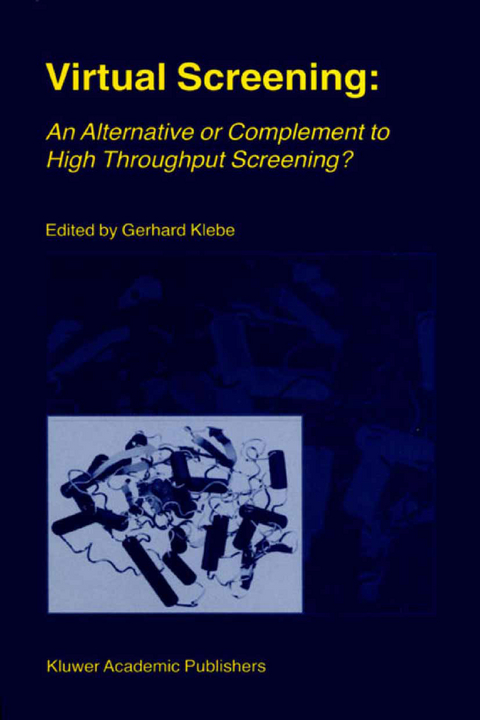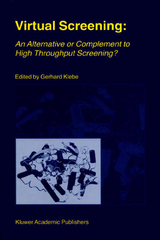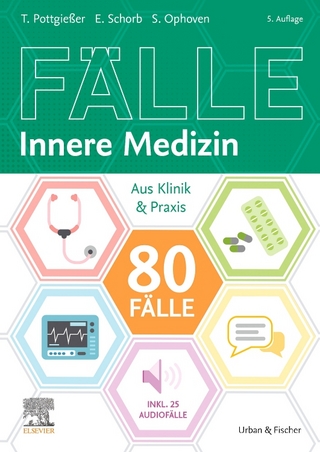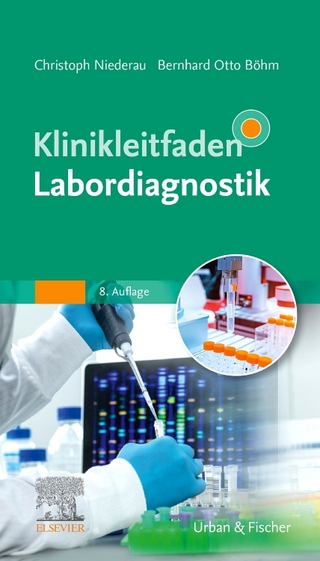Virtual Screening: An Alternative or Complement to High Throughput Screening?
As kind of status report on the maturity of virtual screening as a technique in drug design, the first workshop on new approaches in drug design and discovery was held in March 1999, at Schloß Rauischholzhausen, near Marburg in Germany. More than 80 scientists gathered and discussed their experience with the different techniques. The speakers were invited to summarize their contributions together with their impressions on the present applicability of their approach. Several of the speakers followed this requestwhich is summarized in this publication.
Combination of molecular similarity measures using data fusion.- Optimization of the drug-likeness of chemical libraries.- Generating consistent sets of thermodynamic and structural data for analysis of protein-ligand interactions.- Multiple molecular superpositioning as an effective tool for virtual database screening.- A recursive algorithm for efficient combinatorial library docking.- Modifications of the scoring function in FlexX for virtual screening applications.- A knowledge-based scoring function for protein-ligand interactions: Probing the reference state.- Predicting binding modes, binding affinities and ‘hot spots’ for protein-ligand complexes using a knowledge-based scoring function.- Hydrophobicity maps and docking of molecular fragments with solvation.- Virtual screening with solvation and ligand-induced complementarity.- Similarity versus docking in 3D virtual screening.- Discovering high-affinity ligands from the computationally predicted structures and affinities of small molecules bound to a target: A virtual screening approach.- In vitro and in silico affinity fingerprints: Finding similarities beyond structural classes.- Computer-assisted synthesis and reaction planning in combinatorial chemistry.- Evaluation of reactant-based and product-based approaches to the design of combinatorial libraries.
| Erscheint lt. Verlag | 30.11.2000 |
|---|---|
| Zusatzinfo | 18 Illustrations, color; 35 Illustrations, black and white; XI, 295 p. 53 illus., 18 illus. in color. |
| Verlagsort | Dordrecht |
| Sprache | englisch |
| Maße | 155 x 235 mm |
| Themenwelt | Mathematik / Informatik ► Informatik |
| Medizin / Pharmazie ► Medizinische Fachgebiete ► Pharmakologie / Pharmakotherapie | |
| Medizin / Pharmazie ► Pharmazie ► PTA / PKA | |
| Studium ► 2. Studienabschnitt (Klinik) ► Anamnese / Körperliche Untersuchung | |
| Naturwissenschaften ► Chemie ► Physikalische Chemie | |
| Technik | |
| ISBN-10 | 0-7923-6633-6 / 0792366336 |
| ISBN-13 | 978-0-7923-6633-1 / 9780792366331 |
| Zustand | Neuware |
| Haben Sie eine Frage zum Produkt? |
aus dem Bereich




